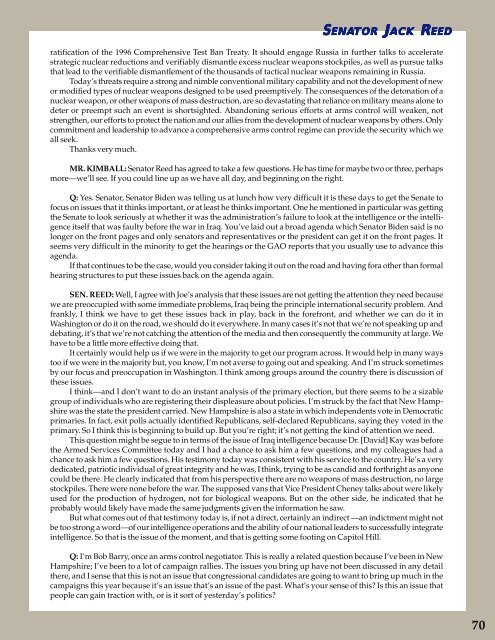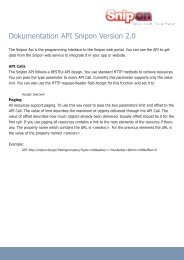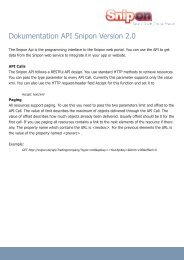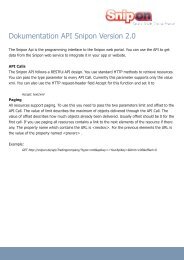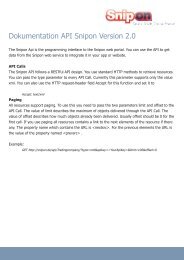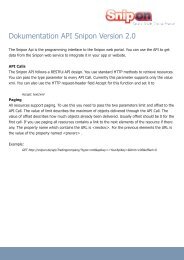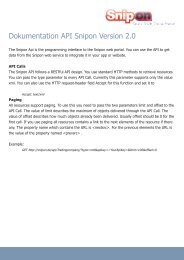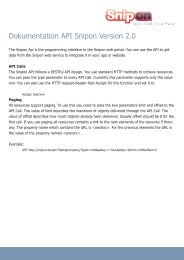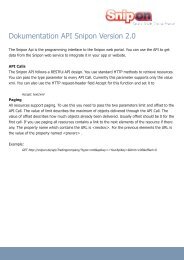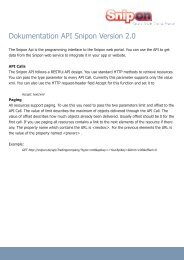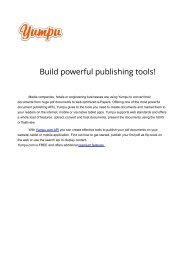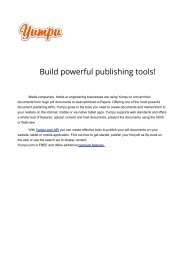test_pdf.pdf
You also want an ePaper? Increase the reach of your titles
YUMPU automatically turns print PDFs into web optimized ePapers that Google loves.
SENA<br />
ENATOR<br />
JACK<br />
REED<br />
ratification of the 1996 Comprehensive Test Ban Treaty. It should engage Russia in further talks to accelerate<br />
strategic nuclear reductions and verifiably dismantle excess nuclear weapons stockpiles, as well as pursue talks<br />
that lead to the verifiable dismantlement of the thousands of tactical nuclear weapons remaining in Russia.<br />
Today’s threats require a strong and nimble conventional military capability and not the development of new<br />
or modified types of nuclear weapons designed to be used preemptively. The consequences of the detonation of a<br />
nuclear weapon, or other weapons of mass destruction, are so devastating that reliance on military means alone to<br />
deter or preempt such an event is shortsighted. Abandoning serious efforts at arms control will weaken, not<br />
strengthen, our efforts to protect the nation and our allies from the development of nuclear weapons by others. Only<br />
commitment and leadership to advance a comprehensive arms control regime can provide the security which we<br />
all seek.<br />
Thanks very much.<br />
MR. KIMBALL: Senator Reed has agreed to take a few questions. He has time for maybe two or three, perhaps<br />
more—we’ll see. If you could line up as we have all day, and beginning on the right.<br />
Q: Yes. Senator, Senator Biden was telling us at lunch how very difficult it is these days to get the Senate to<br />
focus on issues that it thinks important, or at least he thinks important. One he mentioned in particular was getting<br />
the Senate to look seriously at whether it was the administration’s failure to look at the intelligence or the intelligence<br />
itself that was faulty before the war in Iraq. You’ve laid out a broad agenda which Senator Biden said is no<br />
longer on the front pages and only senators and representatives or the president can get it on the front pages. It<br />
seems very difficult in the minority to get the hearings or the GAO reports that you usually use to advance this<br />
agenda.<br />
If that continues to be the case, would you consider taking it out on the road and having fora other than formal<br />
hearing structures to put these issues back on the agenda again.<br />
SEN. REED: Well, I agree with Joe’s analysis that these issues are not getting the attention they need because<br />
we are preoccupied with some immediate problems, Iraq being the principle international security problem. And<br />
frankly, I think we have to get these issues back in play, back in the forefront, and whether we can do it in<br />
Washington or do it on the road, we should do it everywhere. In many cases it’s not that we’re not speaking up and<br />
debating, it’s that we’re not catching the attention of the media and then consequently the community at large. We<br />
have to be a little more effective doing that.<br />
It certainly would help us if we were in the majority to get our program across. It would help in many ways<br />
too if we were in the majority but, you know, I’m not averse to going out and speaking. And I’m struck sometimes<br />
by our focus and preoccupation in Washington. I think among groups around the country there is discussion of<br />
these issues.<br />
I think—and I don’t want to do an instant analysis of the primary election, but there seems to be a sizable<br />
group of individuals who are registering their displeasure about policies. I’m struck by the fact that New Hampshire<br />
was the state the president carried. New Hampshire is also a state in which independents vote in Democratic<br />
primaries. In fact, exit polls actually identified Republicans, self-declared Republicans, saying they voted in the<br />
primary. So I think this is beginning to build up. But you’re right; it’s not getting the kind of attention we need.<br />
This question might be segue to in terms of the issue of Iraq intelligence because Dr. [David] Kay was before<br />
the Armed Services Committee today and I had a chance to ask him a few questions, and my colleagues had a<br />
chance to ask him a few questions. His <strong>test</strong>imony today was consistent with his service to the country. He’s a very<br />
dedicated, patriotic individual of great integrity and he was, I think, trying to be as candid and forthright as anyone<br />
could be there. He clearly indicated that from his perspective there are no weapons of mass destruction, no large<br />
stockpiles. There were none before the war. The supposed vans that Vice President Cheney talks about were likely<br />
used for the production of hydrogen, not for biological weapons. But on the other side, he indicated that he<br />
probably would likely have made the same judgments given the information he saw.<br />
But what comes out of that <strong>test</strong>imony today is, if not a direct, certainly an indirect —an indictment might not<br />
be too strong a word—of our intelligence operations and the ability of our national leaders to successfully integrate<br />
intelligence. So that is the issue of the moment, and that is getting some footing on Capitol Hill.<br />
Q: I’m Bob Barry, once an arms control negotiator. This is really a related question because I’ve been in New<br />
Hampshire; I’ve been to a lot of campaign rallies. The issues you bring up have not been discussed in any detail<br />
there, and I sense that this is not an issue that congressional candidates are going to want to bring up much in the<br />
campaigns this year because it’s an issue that’s an issue of the past. What’s your sense of this? Is this an issue that<br />
people can gain traction with, or is it sort of yesterday’s politics?<br />
70<br />
70


